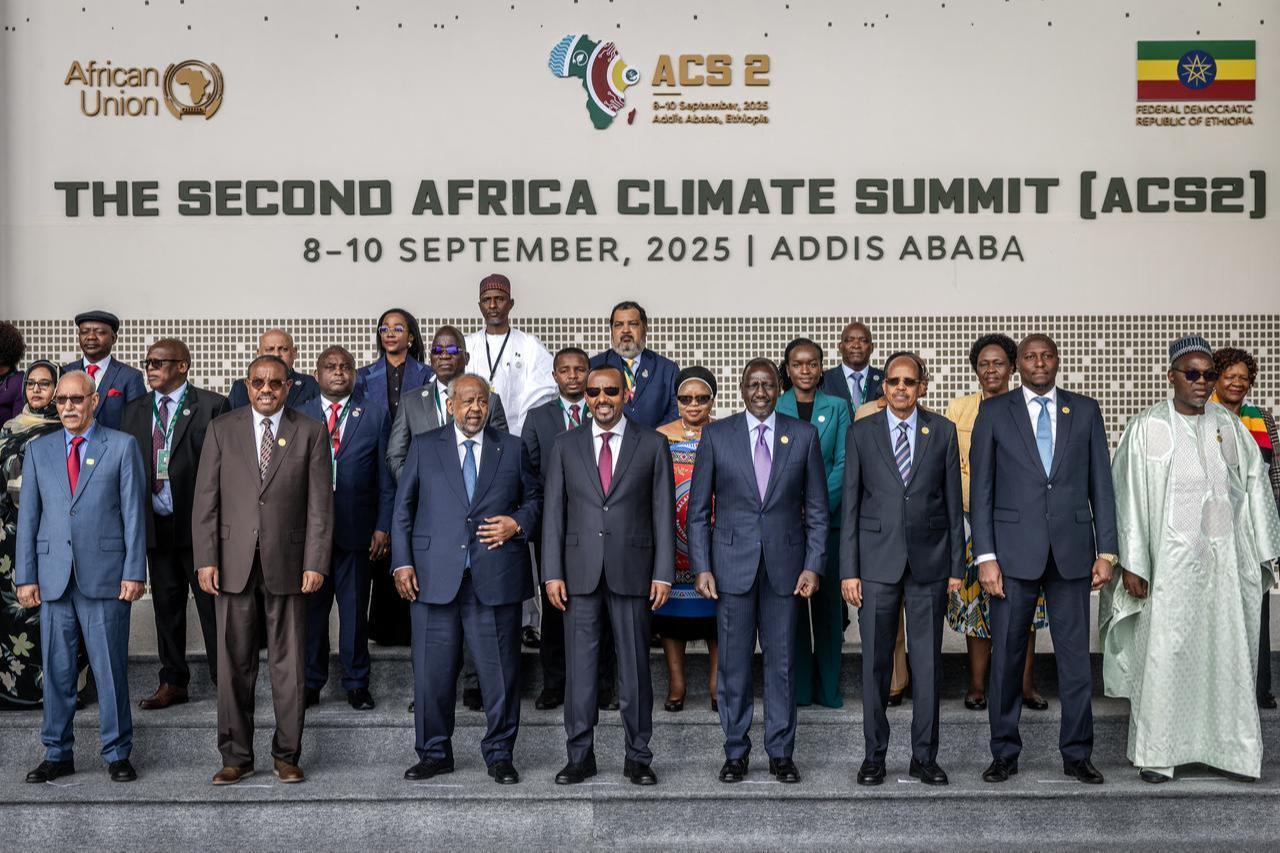𝐀𝐟𝐫𝐢𝐜𝐚 𝐂𝐥𝐢𝐦𝐚𝐭𝐞 𝐒𝐮𝐦𝐦𝐢𝐭 𝟐𝟎𝟐𝟓: Conclusions
The Africa Climate Summit 2025 (ACS2), held in Addis Ababa, Ethiopia, arrived with an air of anticipation and urgency. Convened under the theme “Accelerating Global Climate Solutions: Financing for Africa’s Green and Resilient Development,” the summit sought to galvanize the continent’s role in shaping the future of global climate action. African heads of state, international leaders, civil society organizations, academics, and private sector actors converged in Ethiopia’s capital with a shared mission: to position Africa not merely as a vulnerable region in need of aid, but as a critical driver of renewable energy, adaptation, and nature-based resilience.
From Nairobi to Addis Ababa: Building on a Shifted Narrative
The Nairobi summit of 2023 had marked a turning point. There, Africa successfully reframed itself from being perceived solely as a victim of climate change to being recognized as a continent rich in solutions, endowed with natural resources, ingenuity, and the youngest population in the world. Addis Ababa was meant to consolidate this narrative with the Addis Ababa Declaration, envisioned as a unified continental stance demanding equity, justice, and transformative financing ahead of COP30 in Brazil.
Expectations were high: Addis was not just another climate conference, but an opportunity to anchor Africa’s moral authority into concrete political and financial commitments. Yet, as voices from grassroots organizations and civil society—such as GAIA Africa—emphasized, the gap between ambition and reality remains troublingly wide.
A Continent on the Frontline of the Climate Crisis
The urgency is undeniable. Africa contributes less than 4% of global greenhouse gas emissions, yet it shoulders some of the heaviest burdens of climate disruption. The continent is warming at nearly 1.5 times the global average, leading to extreme droughts in the Horn of Africa, destructive floods in West Africa, and growing food insecurity across the Sahel. Climate-sensitive diseases such as malaria are resurging in new areas, threatening millions of lives.
According to the ND-GAIN index, nine of the ten most climate-vulnerable countries in the world are African—including Chad, Guinea-Bissau, Eritrea, Sudan, and Niger. This stark reality underscores why lofty pledges must urgently evolve into systemic change.
Africa’s Potential: From Resources to Leadership
Africa is not a passive actor—it holds some of the world’s most valuable assets for a global green transition. The continent possesses 60% of the world’s best solar resources, 60% of uncultivated arable land, and 40% of critical mineral reserves necessary for renewable technologies and batteries. These figures highlight Africa’s unmatched potential to drive a just green transition that could benefit not only the continent but the planet at large.
The question that Addis Ababa raised is whether global financial and political systems will allow this transformation to take root. Barriers such as outdated eligibility criteria, high debt burdens, and a lack of affordable financing continue to suffocate progress. For many Africans, climate leadership feels less constrained by imagination and capacity than by systemic exclusion from global capital.
Civil Society Demands: Action Over Rhetoric
Grassroots voices demanded that ACS2 move beyond declarations into clear pathways for change. Four urgent priorities were highlighted:
-
Embracing Circular Economy Models: Governments must promote the seven Rs—rethink, refuse, reduce, reuse, repair, repurpose, and recycle—with policies that empower communities and scale reuse initiatives.
-
Transforming Organic Waste Management: Effective separation, collection, composting, and recycling systems are vital not only for emissions reduction but also for supporting informal waste workers, often the unsung heroes of African cities.
-
Strengthening Nationally Determined Contributions (NDCs): Upcoming commitments for 2031–2035 must explicitly integrate waste management and circular economy strategies, linking climate goals with local livelihoods.
-
Guaranteeing a Just Transition: Climate action must protect workers, generate equitable green jobs, and avoid false solutions such as incineration, greenwashing, or “waste colonialism.” Justice demands that communities, particularly waste pickers, remain at the center of policy design.
The Addis Ababa Declaration: A Step Forward or Another Missed Chance?
The Addis Ababa Declaration did reaffirm Africa’s united voice, calling for reforms to global financial systems and emphasizing the continent’s right to fair and predictable climate financing. Leaders such as Ethiopian President Taye Atske Selassie hailed it as a bold statement of Africa’s readiness to lead. Yet declarations alone will not slow rising temperatures or prevent another season of crop failures.
The challenge lies in ensuring that Addis does not become a symbolic milestone but a practical one—anchored in implementation, accountability, and measurable progress.
Looking Ahead: Africa and COP30
As Africa prepares for COP30 in Brazil, unity among its leaders will be paramount. The continent must present a coherent, uncompromising stance that prioritizes the rights of African communities—farmers, workers, women, and youth—over short-term geopolitical gains or corporate interests. The moral clarity of Africa’s position lies in its lived reality: a continent rich in solutions but deprived of fairness.
The words of Thomas Sankara echo powerfully in this moment: “We must choose between champagne for a few or safe drinking water for all.”
Conclusions from the Africa Climate Summit 2025
The Africa Climate Summit 2025 in Addis Ababa was a reminder of both the promise and the fragility of Africa’s climate agenda. On one hand, the Addis Ababa Declaration reaffirmed Africa’s unity and its ambition to lead with solutions—placing renewable energy, circular economy, and just transition at the center of global climate policy debates. On the other, the summit revealed the structural barriers that continue to hold the continent back: limited access to affordable climate finance, rising debt pressures, and a global governance system that still undervalues African leadership.
What emerged most clearly was the urgency of moving from rhetoric to implementation. Civil society, grassroots organizations, and youth leaders consistently stressed that Africa cannot afford another cycle of promises without delivery. The focus now must shift to concrete actions—new financing mechanisms, genuine partnerships, and policies that protect the most vulnerable communities.
In the end, Addis Ababa will be judged not by the speeches given, but by the outcomes it triggers in the lead-up to COP30 in Brazil. If leaders follow through with determination and accountability, ACS2 could be remembered as the summit where Africa cemented its role as a global climate leader. If not, it will risk being archived as yet another well-intentioned but insufficient gathering.





